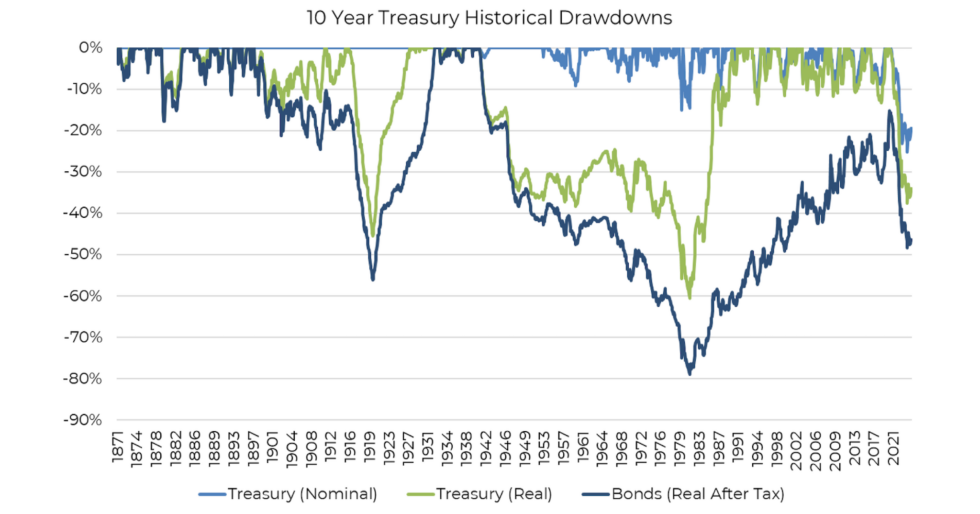Most investors think of Treasury bills—the short-term, “risk-free” U.S. government debt—as the ultimate safe haven. No credit risk, highly liquid, guaranteed by Uncle Sam. This is all true on a nominal basis. T-bills have never had a drawdown or lost money.
However we live in a “real” world, meaning, all that matters is “after inflation”, or what is known as “real returns”.
Here is a stat that blows up conventional wisdom: During the 20th century, the peak-to-trough real drawdown for U.S. T-bills, after adjusting for inflation, was nearly -50%. (10-Year US government bonds were worse with a 60% max real drawdown.)
That’s right. Your “safe” investment quietly lost over half its purchasing power.
I polled investors to see how many actually understood this uncomfortable reality.
The majority, nearly two thirds of respondants, underestimated the risk. A full 16% assumed T-bills had zero or small drawdownxs. And it’s no surprise—this isn’t something Wall Street talks about when pitching safety and security.
What you see is a graveyard of lost purchasing power during extended inflationary regimes—World Wars, the 1970s, you name it. On paper, your T-bills stayed intact. But in real terms, your wealth slowly evaporated.
Even worse, if you’re a tax payer, the return on bonds after taxes is basically….zero. via our friends at Aptus.

The lesson?
There’s no such thing as a free lunch. Even the safest assets carry hidden risks—often in the form of inflation erosion, opportunity cost, or long-term drawdowns that fly under the radar.
If you park all your capital in “safe” cash equivalents for decades, history shows you’re still at risk—just in a different, quieter way. We’ll come back to this topic later when we examine what exactly is the safest asset?
